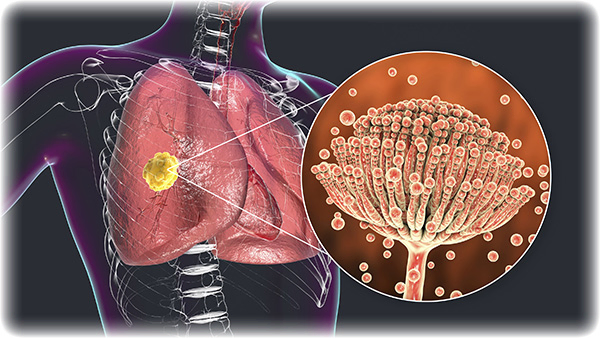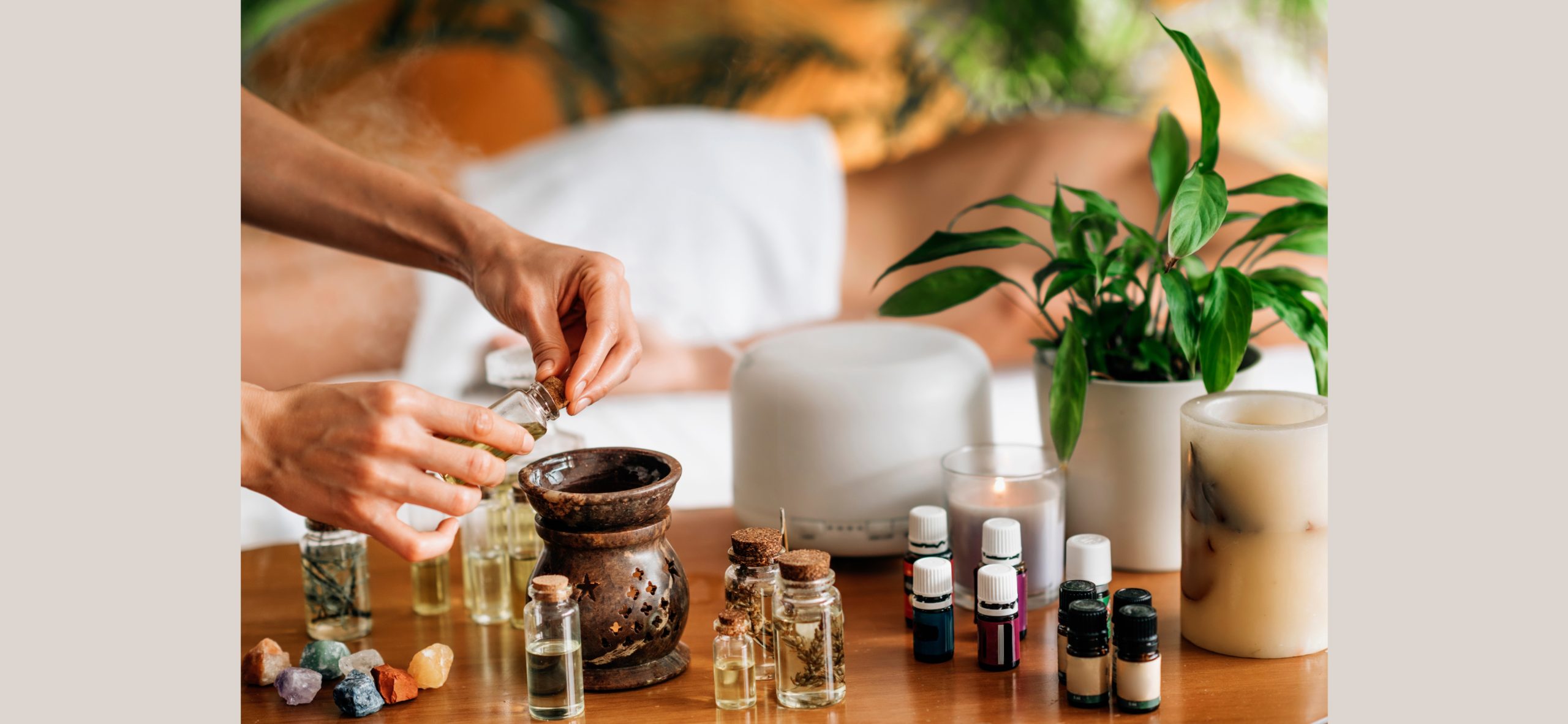Ayurvedic understanding of Chronic Inflammatory Response Syndrome (CIRS)
Chronic inflammatory response syndrome, or CIRS, is an immune dysfunction disorder that is triggered by biotoxins.
A biotoxin is a toxic substance produced by a living organism that we are exposed to regularly. For the vast majority of the population, the body’s detoxification process can eliminate these toxins with minimal adverse effects. However, around 24% of the population has a genetic determinant known as their HLA type, which makes them prone to this biotoxin-induced immune dysfunction. So when an individual with one of the vulnerable HLA types is exposed to huge amounts of biotoxins from either environmental Mold, Lyme, Babesia, or even Candida, immunological dysfunction is triggered. This leads to seemingly unrelated symptoms often misdiagnosed as conditions like POTS, anxiety, depression, chronic fatigue syndrome, etc.
The reason for this varied presentation of symptoms is because immunological dysfunction might appear in the following ways:
- Increased autoimmune processes, including lupus, MS, and interstitial cystitis. These autoimmune processes are frequently initiated by ordinary, nonpathogenic microorganisms in the body.
- Food allergies and environmental causes.
- Excessive cytokine production causes a variety of difficulties, including “illness behaviours” such as loss of appetite and fatigue, sleep disturbance, and hormone receptor resistance, which affect practically every hormone system in the body.
- Immune suppression frequently results in chronic illnesses or recurrent acute infections.
Therefore, CIRS is an inflammatory condition caused by environmental toxins. Now, if we were to see this through the lens of doshas, it may boil down to an imbalance in tridoshas along with the accumulation of toxins within the body. Let’s further elaborate on the Ayurvedic perspective for CIRS.

Ayurvedic understanding of CIRS
In Ayurveda, Chronic Inflammatory Response Syndrome (CIRS) can be understood through the principles of dosha imbalance, ama (toxins), and impaired Agni (digestive fire). While CIRS is not explicitly mentioned in classical Ayurvedic texts, its symptoms and pathophysiology can be correlated with various Ayurvedic concepts related to chronic inflammation and toxin accumulation.
Pathogenesis of ama in CIRS
- Impaired Agni and Formation of Ama:
- Weak Agni leads to incomplete digestion, resulting in the formation of ama in the digestive tract.
- Ama enters the systemic circulation and spreads throughout the body, obstructing the channels (srotas) and disrupting normal physiological functions.
- Obstruction of Srotas (Body Channels):
- Ama obstructs the srotas, impeding the flow of nutrients, wastes, and vital energies (prana, tejas, ojas) within the body.
- This obstruction leads to poor cellular nutrition, waste accumulation, and impaired detoxification processes.
- Dosha Imbalance and Aggravation:
- Ama aggravates the doshas, especially Vata and Pitta. Vata’s erratic nature leads to neurological symptoms, while Pitta’s fiery nature causes inflammation.
- Kapha can also be aggravated by ama, leading to sluggish metabolism and respiratory issues.
- Chronic Inflammation:
- The presence of ama triggers an immune response, leading to chronic inflammation as the body attempts to eliminate the toxins.
- Persistent inflammation results in tissue damage and the release of pro-inflammatory cytokines, contributing to the systemic symptoms seen in CIRS.
- Immune Dysregulation:
- The continuous presence of ama and chronic inflammation dysregulates the immune system, leading to an exaggerated and prolonged inflammatory response.
- This immune dysregulation further perpetuates the cycle of inflammation and toxin accumulation, making it difficult for the body to return to homeostasis.
Pathogenesis of CIRS due to impaired agni
- Initial Impairment of Agni:
- Factors such as poor diet, stress, environmental toxins, and unhealthy lifestyle habits weaken Agni.
- Impaired Agni leads to the formation of ama in the digestive tract.
- Spread of Ama:
- Ama enters the systemic circulation and spreads throughout the body.
- It accumulates in various tissues and organs, obstructing srotas and disrupting normal functions.
- Chronic Inflammation:
- The presence of ama triggers an immune response, leading to chronic inflammation as the body attempts to eliminate the toxins.
- Persistent inflammation results in tissue damage and the release of pro-inflammatory cytokines, contributing to systemic symptoms.
- Immune Dysregulation:
- Continuous exposure to ama and chronic inflammation dysregulates the immune system.
- This leads to an exaggerated and prolonged inflammatory response, further perpetuating the cycle of disease.
- Multisystem Involvement:
- The systemic nature of ama and dosha imbalances leads to symptoms in multiple organ systems, characteristic of CIRS.
- Neurological symptoms (brain fog, cognitive dysfunction) are linked to Vata disturbance.
- Inflammatory symptoms (skin rashes, joint pain) are related to Pitta aggravation.
- Respiratory symptoms (chronic cough, shortness of breath) are associated with Kapha imbalance.

What is the Ayurvedic approach to managing chronic inflammatory response syndrome (CIRS)?
- To address CIRS from an Ayurvedic perspective, the primary goal is to restore Agni, eliminate ama, and balance the doshas. The treatment involves:
Therapies | Benefits and methodologies |
Deepan-pachana (digestive fire enhancement) | – Strengthening Agni using herbs like ginger, black pepper, and long pepper. – Dietary practices that include warm, light, and easily digestible foods. |
Shodhana (purification therapies) | – Panchakarma treatments to remove ama and balance doshas. – Virechan (therapeutic purgation) for Pitta elimination. – Basti (medicated enema) for Vata balance and colon cleansing. – Nasya (nasal administration) for head region detoxification. |
Balancing doshas | – Specific dietary and lifestyle modifications to balance Vata, Pitta, and Kapha. – Using dosha-specific herbs to support the body’s natural healing processes. |
Rasayana (rejuvenation therapy) | – Rejuvenating herbs like Ashwagandha, Shatavari, and Amalaki enhance overall vitality and support the immune system. |
Lifestyle modifications | – Adopting a daily routine (Dinacharya) and seasonal regimen (Ritucharya) to support natural detoxification and maintain dosha balance. – Incorporating practices like yoga, pranayama, and meditation to reduce stress and promote holistic well-being. |
Concluding…
By addressing the root causes of dosha imbalance, impaired Agni, and ama accumulation, Ayurvedic treatment aims to restore homeostasis and health in individuals suffering from CIRS. This holistic approach not only alleviates symptoms but also promotes long-term wellness and prevents recurrence.